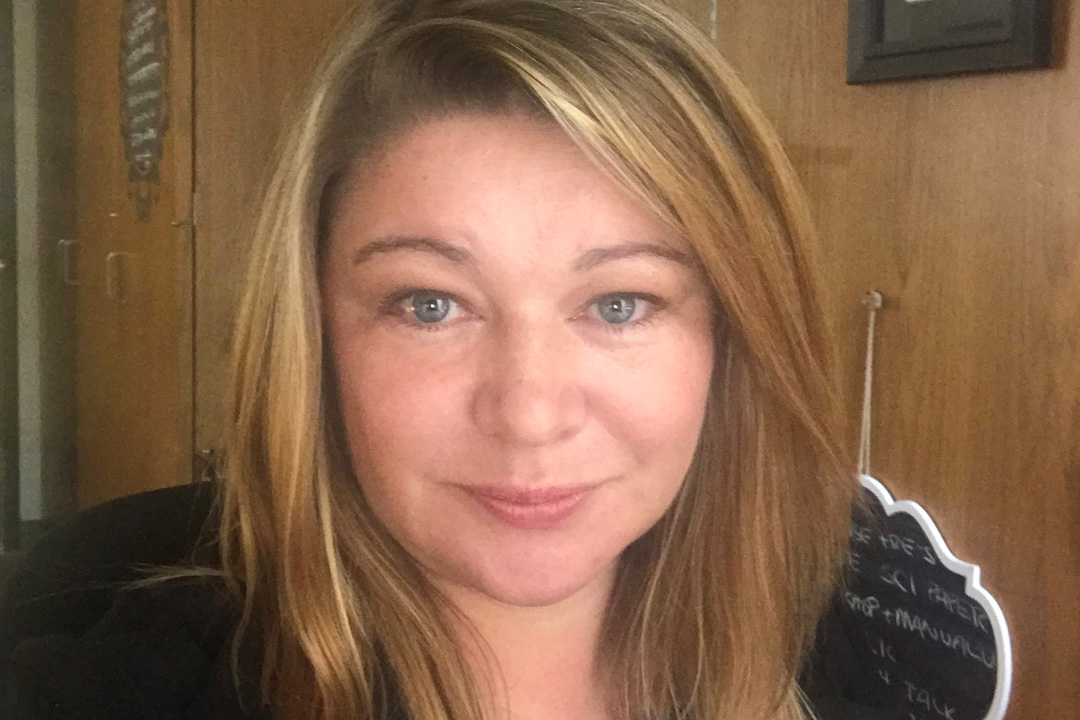
Supporting older adults: USask researcher virtually connecting at-risk isolated seniors during pandemic
Watching her grandfather suffer through the effects of dementia changed everything for Dr. Megan O’Connell (PhD).
By James ShewagaO’Connell was an undergraduate student in the early 1990s at the University of Saskatchewan (USask), when she witnessed first-hand how devastating the syndrome can be.
“I used to drive my bike from the university to his long-term care facility and help feed him lunch because it was very hard to get him to eat anything and family members took shifts to help encourage him,” said O’Connell, now a psychology professor at USask, specializing in neuropsychology.
“I didn’t quite put the pieces together at the time, but he had a hard time being diagnosed because he would do really well on the screening tests, but those who knew him best knew he had challenges. He was actually not even diagnosed until about three months before he finally passed away. So, challenges in getting a diagnosis, and supporting those living with dementia, has always been where a lot of my work has been focused over the years.”
The pandemic has presented a new set of challenges for older adults suffering from dementia and Alzheimer’s, many who are isolated from family in long-term care facilities due to COVID-19 health and safety precautions. O’Connell said patients’ increasing cognitive decline, exacerbated by isolation during the pandemic, is a growing concern.
“We have a couple of papers that we are just submitting, one is a review of how COVID-19 has impacted people living with dementia, and its profound impacts,” she said. “You see descriptions of accelerated decline in people with dementia because they no longer have enough stimulation and socialization. Clearly, the pandemic has impacted all of us, and everyone’s mental health is impacted, but it’s not even close to the impacts that I am seeing on people who have cognitive decline or cognitive impairment and those who are most vulnerable.”
The effects of isolation from family are documented in another recent study by O’Connell’s research team, studying social media posts of frustrated family members.
“One of our projects is an analysis of tweets from February to September (in 2020), describing people’s experience with dementia,” she said. “There are some really poignant examples of this long-term care phenomenon, of people with lived experience with dementia who may not necessarily understand the COVID context and why family members can’t visit and how they are expressing despair and feelings of abandonment. It is hard enough to be separated from your loved ones, but now imagine you don’t understand why it is happening.”
With isolation affecting the mental health of a huge segment of the population—not only those living with dementia—O’Connell has helped start initiatives including virtual socialization hubs for older adults, building on previous success in connecting with dementia patients through the Rural and Remote Memory Clinic. O’Connell’s teams has partnered with the Saskatoon Council on Aging and the Alzheimer’s Society of Saskatchewan to initiate provincial online support groups, a pilot project that is now extending to British Columbia.
“Most of our energies focus on trying to virtually connect with existing groups and communities,” said O’Connell, who has also volunteered her time during the pandemic to provide free counselling support for front-line health care providers. “We discovered that getting groups of strangers together is not all that appealing to a lot of people, so the socialization hubs are a bit more about encouraging and supporting people to get together and to maintain their community and social connections virtually. And one of my long-term goals is to create a space for people living with dementia to also feel safe to join in.
O’Connell’s team is also initiating a system of remotely monitoring the mental health of aging adults via phone. With all projects like these, O’Connell said the key to success is to collaborate with community health groups and funding organizations, in order to ensure the initiative continues after initial project funding expires.
“One of the things that I learned early on is that if you don’t work with communities, nothing is sustainable and the research you do just dies when the research grant ends,” she said. “So one of the things about working with communities and partners and agencies is you are more likely to have it fit their needs, and more importantly have it sustainable and embedded in their processes and procedures. Funding agencies and governments need to see value for their dollars and need to see impact, and research is a great way to do that.”
As O’Connell looks to the future, the health needs of older adults will continue to require increasing resources as that percentage of the population continues to grow.
“Definitely, that demographic shift that we are at the beginning of, is huge and drives a lot of us who do this kind of work,” said O’Connell. “The first paragraphs that we write for any paper are about the demographics and what future projections are. Even when I am training clinical psychology students, I tell them that older adults are a big part of the population and have different needs with their psychological stage in life. So, I think training in issues related to older adults is critical. They are going to need more help as time goes on, particularly health care.”

